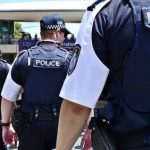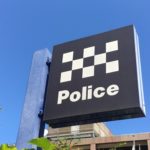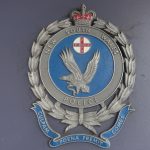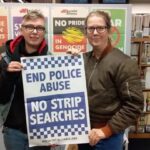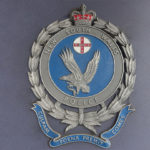Attempting a Hat-Trick of Successfully Suing Police: An Interview With ISUEPolice’s Luke Brett Moore
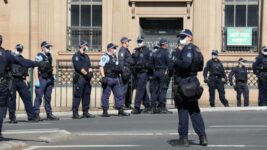
Prior to the onset of the pandemic and its accompanying COVID policing, issues around the use of strip searches by the NSW Police Force were front and centre, whether that was for their ever-increasing application, or the common breaching of search protocols.
UNSW’s 2019 Rethinking Strip Searches by NSW Police report found that over the four years to June 2018, the use of this invasive practice by state law enforcement had increased by 47 percent, with 64 percent of those strip searches resulting in no illegal items being found.
Researchers Dr Vicki Sentas and Dr Michael Grewcock further outlined that the strip search protocols set out in part 4 division 4 of the Law Enforcement (Powers and Responsibilities) Act 2002 (NSW) are not only vague and unclear, but they’re little understood by many officers on the beat.
However, despite the campaign against their overuse, strip searches continue to be applied frequently in this state, and often in a manner that breaches the law, which Charles Sturt University law student Luke Brett Moore understands only too well.
“Seriousness and urgency”
On the evening of 8 April 2017, Moore was approached by some police out the front of the Hibernian Hotel in Goulburn. The officers stated that they had reason to suspect he may be holding illegal drugs, and they wanted to strip search him in the back of their paddy wagon.
Being aware of his rights, Moore told the officers he refused to be searched in the vehicle, as there must be an urgent need for this procedure to be carried out in the field. So, the officers then arrested him and took him to the station, where he was strip searched and nothing was found.
Moore was then charged with hindering police, contrary to section 546C of the Crimes Act 1900 (NSW). It carries a maximum of 12 months in prison and/or a fine of $1,100. And while a magistrate later found him guilty, former NSW District Court Judge David Frearson overturned this on appeal.
“The demand for the strip search in the police vehicle near the police station could not be fairly and reasonably be regarded as in the execution of duty,” his Honour found, which in turn, led to the arrest and subsequent strip search down at the station – a short walk from the pub – being unlawful.
Misconduct compensated
Following the Frearson decision, Moore went on to sue the NSW Police Force. And at present, he’s doing it again for the third time.
Moore is well known for being the man who found he was able to overdraw funds from his bank account in May 2010. And by the time the bank realised he’d been withdrawing excess cash in August 2012, he’d managed to take out $2.1 million.
Soon to complete his Charles Sturt University law degree, Moore also runs ISUEPolice.com a service to help people seek compensation after they’ve undergone an illegal strip search.
Sydney Criminal Lawyers spoke to Luke Brett Moore about the current issue he’s suing police over, the negative impacts that strip searches can have on individuals, and how he can assist citizens who’ve been illegally strip searched by police seek justice.
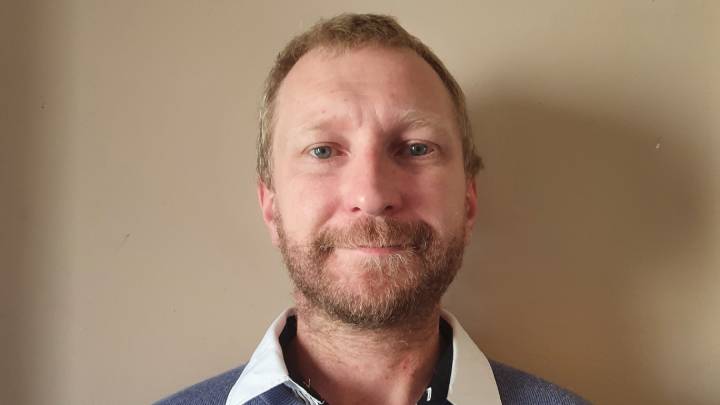
After being illegally strip searched by NSW police in early 2017, you’ve been campaigning against the use of this invasive procedure by law enforcement in this state.
The number of strip searches being used by state police has dramatically increased over the last half decade. However, one might expect that during a pandemic, the force might have eased off on the procedure due to the risk of infection.
Luke, in your understanding, has NSW police pulled back on its use of strip searches over the pandemic period?
No. I certainly don’t think they have. The LECC inquiry into NSW Police Force strip search practices found that last year they still performed 8,033 strip searches.
There was a decrease of 4,000 from the previous year, but that can be put down in large part to the lockdown restrictions and the restrictions on public gatherings, such as music festivals, where literally hundreds of people can be strip searched in a single day.
So, I don’t think they’ve cut back on strip searches, but there’s been less opportunity to perform them because of the lockdown restrictions and less people being out on the streets and at events.
In fact, there have been way less people on the streets, so I don’t know how they managed to force 8,000 people to strip naked, when we were all locked up in our homes for most of last year. I mean, that’s basically a person every hour.
There has been a strong campaign against NSW police overuse of strip searches coming from a number of sectors.
Why is the procedure problematic in the way it’s being used? What sort of impact is it having on individuals and the public?
It’s problematic in the way it’s being used because the police aren’t being educated on when and in what circumstances they’re allowed to strip search a person.
The reality is most police couldn’t even define a strip search, let alone identify the circumstances in which they are allowed to perform one, and the procedures they must follow.
Inadequate training is the cause of most unlawful strip searches. And no doubt, there are some overzealous police that abuse their power and unfairly target people they don’t like.
But the vast majority of strip searches are performed by officers who think they have the lawful authority to do so when they don’t.
The trauma and the effects of strip searches shouldn’t be understated. Research shows that victims of strip searches live with thoughts and feelings similar to survivors of sexual assault.
Fear of police is a very real thing. Once a person has been illegally strip searched it causes you to lose faith in the police, and you will forever feel less safe in their presence.
For me personally, the sight of police triggers anxiety and stress. So, it’s ludicrous, and it is damaging the relationship the police have with the community.
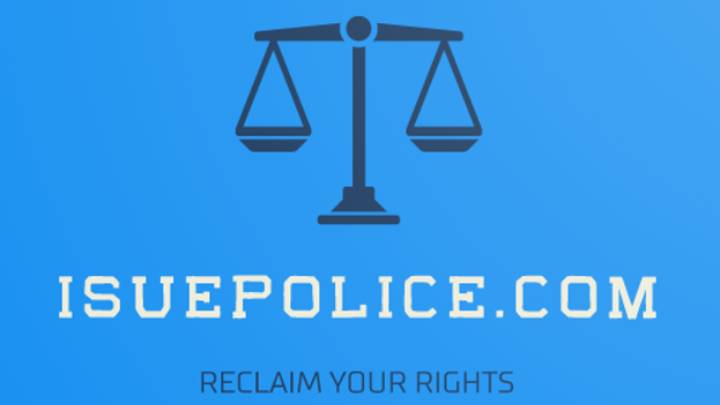
You’ve launched the organisation called ISUEPolice.com, which is calling on those who do find themselves having been questionably strip searched by NSW police to get in contact.
Can you tell us about how ISUEPolice is operating?
ISUEPolice.com is in its start up stage. But there is a clear plan towards making it a firm specialising in civil litigation against police.
Right now, it’s operating as a completely free service, where I take the calls, listen to the person’s story, get some basic details and then find them the best lawyer to handle their case.
There are very few lawyers that specialise in this area in NSW. There are only a couple of firms that run most of these cases. So, that’s happening at the moment.
When I graduate with my law degree in October, I have a few different ways I plan on monetising it. And eventually, in a year or two, it will morph into my own firm, where I plan to employ human rights lawyers, and we handle all the cases inhouse.
And you’re saying people who have been strip searched can be warranted compensation?
Probably most people who have been strip searched are owed compensation, because, in my view, the majority of strip searches the police perform are unlawful.
People really need to be educated about their rights, and know that if they have been strip searched, there are avenues where they can seek compensation, and most of these lawyers that handle it do no win-no fee.
So, you have the conversation with me, and it goes from there. Certainly, if you have been strip searched you should seek legal advice because you’ve got nothing to lose in speaking to someone about it.
We last spoke in October 2019. At that time, you were about to sue police over an April 2017 incident that saw you strip searched at the Goulburn Police Station, after you refused to be searched in the back of a paddy wagon out the front of a pub. The search was later found to be illegal.
Why was the search problematic? And what was the outcome of your case?
It was a very interesting legal argument. And I managed to turn a police conviction into a payout.
I was arrested for refusing to be strip searched outside a pub. I said to the police that they had to take me to the station to do this, as it was an unlawful search. I told them if they did it, I was going to sue them.
I ended up being charged with hindering police and being convicted. When I appealed it to the NSW District Court, I went before Judge Frearson, who is now the chair of the State Parole Authority.
The judge found that the circumstances, while serious, were not so urgent that a strip search was required. He said if it were so urgent, then the police would have used force to perform the search in the paddy wagon, as opposed to arresting me to perform the strip search at the station.
His Honour commented that if they had walked me to the station, instead of formally arresting me for hindering, the strip search may have been legal.
So, it was an unexpected reasoning, but it was a victory, nonetheless. And that’s all I needed to sue.
You’re currently suing the police again. This is the third time. Can you tell us about what the latest case you’re pursuing involves?
Back in February, I rang Newtown Police Station – whose officers I might add have been sued multiple times over unlawful strip searches – and I spoke to an officer there about the law and unlawful strip searches.
I recorded the phone call. That officer then turned around and made a completely false and fabricated statement. He lied and said I rang up and threatened to kill police, and that I said I would follow a particular officer home and kill them.
It was complete garbage. Nothing of this type was said on the phone. The next day, my home was raided by the Fixated Persons Unit and the officers confiscated my phone.
I told them I had the conversation recorded on it that would prove the officer’s statement was false. But they wouldn’t give me access to it.
I was denied bail and spent three weeks in solitary confinement, before being granted bail on my second attempt.
The police then withheld that exculpatory evidence from me for a further four months and continued to pursue the bogus charges.
It wasn’t until the Commonwealth DPP got involved that cooler heads prevailed, and the charges were withdrawn.
Just last week, I won costs to the amount of $12,000, including some money I recovered for Legal Aid.
The state has been issued with a Defamation Concerns Notice, and I am currently preparing a Statement of Claim for misfeasance in public office, malicious prosecution and defamation.
And lastly, Luke, for those who are interested in taking action after being strip searched by NSW police, how do they get in contact with you? And what can they expect to happen from there?
If a person has been stripped searched the best way to get in touch is to call or text my mobile: 0412 944 698. If they text, they should provide their name, location, and the word “search”.
What will happen from there is I will organise an appointment with them, either via phone or Zoom. I’ll get some details, gather some evidence, and from there, we fill out some forms and we do the GIPA request.
GIPA is the freedom of information request. Police then have to provide all the evidence they have, including the notebook entries and video. That can take several weeks, sometimes more if the police are busy.
Once we have all that information, the case gets assessed by an expert lawyer, who, if they agree to take on the case, does so on a no win-no fee basis.
From there, we get a more detailed statement and file the claim as soon as possible. And most cases are finalised within 12 months.


